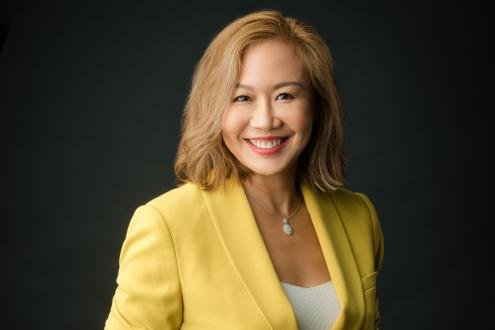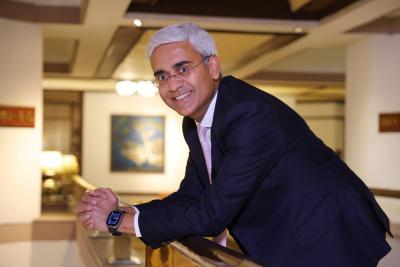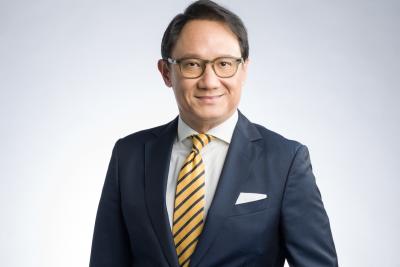Barclays Private Bank Head for Singapore Evonne Tan on the Narrative of Creativity, Collaboration & Alignment

Evonne Tan of Barclays Private Bank
Feb 8, 2023
Evonne Tan joined as Head of Barclays Private Bank, Singapore in mid-2021, with a mission to focus on building on the collaboration between Barclays Private Bank and the Corporate and Investment Bank in Singapore. The aim was to bring enhanced, tailored investment propositions and provide access to a curated range of sophisticated banking, corporate banking and investment products and solutions, targeted specifically at the Ultra High Net Worth (UHNW) segment of the wealth market. Evonne met with Hubbis recently to describe how the business has been evolving after roughly 18 months of strategising and launching. She explained just what Barclays brings to the table for these UHNW clients, especially the close collaboration with the corporate and investment bank, and also how and where the bank seeks to truly differentiate itself. And she explained how this phase of her career building an exciting new, niche private banking operation within global universal bank with UK centricity has aligned ideally with the last phases of formal education for her two children, as one nears the end, and the other prepares for the start of their university lives in London.
Evonne opens the discussion by reminding us that when Hubbis last published a feature article on her, it was in 2021 shortly after she had joined to effectively reopen the Barclays private banking business in Asia, some five years after the bank had actually exited the mainstream private banking business in the region in 2016, selling out to Bank of Singapore. The re-launched Private Bank operation had its first full year of operation in 2022, targeting only the UHNW and single-family office market, and working very closely with the corporate and investment bank operations.
“As a universal bank, we are well positioned to meet our clients’ complex and multi-jurisdictional needs, tapping on our global franchise strengths to offer highly tailored institutional quality investment and financing solutions,” she reports.
2022, she concedes, was in some ways a tough year to launch the new operations, but also a time in which there was no historical legacy to contend with which may have served reasonably well.
A clean slate
“We were having new conversations, uncluttered by any need to sort of defend existing portfolios,” she explains.
“We were coming in fresh and were able to provide an unbiased view on asset allocation, portfolio construction and generally, more holistic advice, resulting in exceeding expectations in terms of hiring bankers, and onboarding clients and assets.”
Although the Asian private banking operation is once again in its formative stages, Evonne is confident of the speed and direction in which it can progress. She has an excellent pedigree in wealth management and specifically in the top echelons of clientele, having arrived at Barclays from UBS Singapore, where she was a Market Team Head responsible for running the UHNW Singapore business. And she brought with her to Barclays over 25 years of experience in the financial services industry, which includes broad exposure to foreign exchange sales and trading, corporate solutions structuring, fund management and private wealth management.
The UK - still a major draw for global money
She explains that to be motoring with clients, the bank has been playing the UK card quite well. “Despite the negative press around the UK over the past year or more, there are many wealthy and ultra-rich investors who still want to invest in the UK, particularly in real estate,” she reports. As a UK bank, Barclays is well positioned to provide both advice and specialist financing solutions across both residential and commercial property and across the length and breadth of the UK, not only in London.
She says that the bank has therefore been positioning itself as the bank of choice for such investments. “With the pound weak and UK asset prices down, there are clients seeing this as a significant opportunity to enter the market and we want to be in a position to help them with the right solutions,” she remarks. Against a backdrop of deglobalisation and geopolitical tensions, investors today are more focused than ever on the need for diversification of jurisdictions as well as investments.
Feel the ‘Power’
Evonne explains that the reborn Barclays Private Bank in Asia aims to serve the complex needs of UHNW clients and global family offices by leveraging what the bank calls the ‘Power of One Barclays’, which connects clients to a broader offering, including the worldwide capabilities of Barclays Corporate and Investment Bank.
She says this can be seen especially well in their presence in India, where the bank has a major presence across investment banking, trust, asset management and so forth. “Power of One Barclays can be seen working extremely well in India, where the Private Bank has been able to work very closely with the Corporate and Investment Bank to deliver bespoke solutions to clients,” she explains.
Our franchise strength in India has allowed us to develop the Global Indian business for the Private Bank and we currently have an active India-London-Dubai corridor. With the Singapore office now open, this has helped us to complete the corridor allowing us to be in a unique position to serve the UHNW Indian families on a global basis.
The Barclays angle of refraction
As to investment curation, Evonne explains that their approach is somewhat nuanced through the prism of a UK/European lens.
“Clients tell us we are refreshing in our approach,” she says. “We have a somewhat differentiated investments offering all round. In our private markets offering, for example, we tap on our strong global network to curate investment opportunities, in particular bringing UK, US and European deals to the table, with a strong focus on impact investments, creating a somewhat niche positioning in this space. Many UHNW clients and families have told us that they understand our value proposition and see what we offer to be complementary to whatever they're doing with other banks.”
Asia’s rising tide of private wealth
Evonne says that it is now a different market in Asia to the one in 2016 when Barclays exited Asian private banking.
“The centre of gravity has shifted much further to the APAC region in recent years, and the growth of the economies and private wealth is remarkable. Barclays is committed to continue investing in this region as Asia is strategically important for the firm,” she reports. “On a personal level, the Barclays role came along at the right time. I am at the stage of my career where I have a lot to give and contribute and the challenge of being part of a build-out for a very strong global franchise in a fast growing market has so far been extremely exciting and fulfilling”
Universal appeals
She says Barclays is a great universal bank brand and that has helped her as she builds a business from scratch. “As a new business there is really, only upside, and so far, so good,” she reports.
Evonne reports that the Barclays Private Bank proposition also centres significantly on products, services and advice founded on sustainability, impact, and ESG as lynchpins for UHNW clients and family offices. In fact, she had articulated that superbly well at a Hubbis panel discussion on sustainability and ESG earlier in 2022 (see that article here: https://hubbis.com/article/why-sustainability-as-a-value-system-can-help-bring-wealthy-families-together-today-and-help-tomorrow-s-world).
Wind in Singapore’s sails
Singapore, Evonne reports, continues to be an excellent hub for the new operation. The phenomenal growth of wealth management is for example reflected, she says, in the surge of single family offices from a mere 50 in 2017 to around 700 as at end 2021.
“The government initiatives plus the pandemic were the twin engines for this incredible development,” she reports. “More broadly, Singapore, as a wealth management hub, benefits from a strong regulatory environment, good governance, robust legal system and political stability whilst housing a deep and growing ecosystem of financial and professional services, technology and FinTech expertise. Singapore is also a great place to live, with access to good healthcare and a top quality education system, thereby attracting many UHNW to this city state.”
But she also adds that for many UHNW investors who have a choice, global diversification is equally as important.
“We never quite know where geopolitics will shift next, so many UHNW investors are planning ahead and managing risks through diversification of jurisdictions and investments.”
Key priorities
A key mission for the Asia business is to further develop and enhance the platform. “We are working on several new projects this year to expand our offering, with more Asian-centric products that are more relevant to the clients out here,” Evonne reports.
Talent is another priority, with Evonne being very focused on finding the right type of banker profile that would suit the platform. I want to talk to bankers who are excited to be part of a built team, able to contribute to business development and see the tremendous growth opportunity and trajectory that Barclays has in Singapore and Asia.
Getting Personal with Evonne Tan
Evonne has assembled an impressive resume. She joined Barclays Private Bank recently from UBS in Singapore, where she headed the UHNW client team. Before UBS, she had worked at leading names such as Morgan Stanley, Merrill Lynch, and Deutsche Bank in various positions within Global Markets and Wealth Management.
She is a graduate of the National University of Singapore, having studied Sociology & Geography, and holds a Masters of Wealth Management from the University of Rochester and a Masters in Finance from the University of Bern.
She brought to Barclays over 25 years of experience in the financial services industry, including broad exposure to different businesses, including foreign exchange sales and trading, corporate solutions structuring, fund management, and private wealth management. She has in recent years specialised in the delivery of bespoke strategic one-bank solutions to key UHNW clients, which is the central focus for the re-launched private bank in Asia.
Although born in Singapore, she grew up in Kuala Lumpur, Malaysia, through to the age of 16, as her father, a Malaysian who had worked in Singapore, was in Malaysia as a senior banker with UMBC at the time. After she returned to Singapore at the age of 16, she went to Victoria Junior College to complete her A levels and then enjoyed her years at NUS before embarking on her career in financial services.
“Every time I moved, in my career, I have been able to layer on new areas of expertise and in this role, I can bring all these strands of experience and knowledge to bear for UHNWIs, who are increasingly highly discerning clients,” she reports.
She says that to some extent, she cut her entrepreneurial teeth when she started in wealth management at Merrill Lynch in 2005. “The old Merrill was based on a US brokerage model, in which you hunted every client and therefore owned your book of business and remuneration was on a commission basis. That model taught me ownership, accountability, entrepreneurship and hunter skills that only experience can bring,” she recalls. “That gave me the platform to leap to Morgan Stanley and later on UBS, where I then decided to go into management, which has also prepared me well for building this new business at Barclays.”
Evonne has two children, a son aged 24 studying Maths and Philosophy at University College in London, and a daughter who just finished her A levels in Singapore.
She keeps fit with running, yoga, and weight training. Typically, she would enjoy travels for work and leisure, with beach holidays a favourite destination and on the top of her list in anticipation of travel resuming in earnest.

Head of Barclays Private Bank, Singapore at Barclays Private Bank

More from Evonne Tan, Barclays Private Bank
Latest Articles






